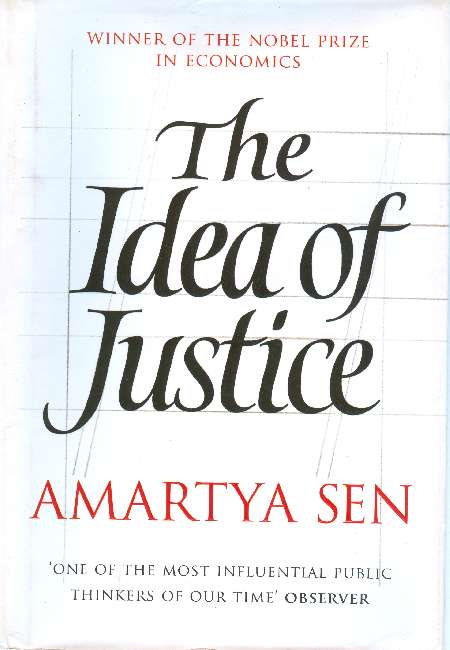Amartya Sen’s  Amartya Sen’s |
Book: "The Idea of Justice"
Author: Amartya Sen
Publisher: Penguin-Allen Lane
Price: 25 pounds (Rs.2,000)
With this book, Amartya Sen is trying to explore what justice means and has come up with an alternative to the existing model. While doing so, he is also creating an urge in the reader to ponder with the current judicial and social system as a critic.
According to Sen, justice and a perfect social order has to be non-parochial, inclusive and humane. It is based on reasoning and helps to remove inequities. According to him, justice must be free from the domination of the will of majority and one that touches lives that people actually live. In the process, it takes global concerns into account.
He has advocated a model that is compassionate. According to him, "Twenty-five hundred years ago, when young Gautama, later known as the Buddha, left his princely home in the foothills of Himalayas in search of enlightenment, he was moved specifically by the sight of mortality, morbidity and disability around him, and it agitated him greatly."
According to Sen, Gautama Buddha's agony can be understood very easily and "appreciate the centrality of the human lives in reasoned assessments of the world we live in". This, he says, is a central feature of the traditional Indian perspective of 'nyaya' (justice) in contrast to 'niti' (rules). The Nobel laureate's model of justice draws from nyaya.
He quotes from Thomas Hobbes' "Leviathan" to point out where a person should initiate the search for an alternative idea of justice. Hobbes wrote that the lives of people are "nasty, brutish and short".
"That was a good starting point for a theory of justice in 1651 and I am afraid that it is still a good starting point for a theory of justice today," writes Sen, who teaches in Harvard University.
In his hallmark articulate style, Sen has taken examples from everyday life to authenticate his arguments for a new system of justice.
Quoting from Charles Dickens' "Great Expectations", he writes: "In this little world in which children have their existence there is nothing so finely perceived and finely felt as injustice."
Sen says, "What moves us, reasonably enough, is not the realisation that the world falls short of being completely just, which few of us expect, but that there are clearly remediable injustices around us which we want to eliminate."
Sen argues that the mainstream system of justice, despite several achievements, has taken us in the wrong direction.
The big difference between Sen and most other theorists of justice is that they use one strand of "enlightenment thinking", while he uses another.
Sen's analysis of justice is a theory of "reducing injustice in this world", forwarded by thinkers like Karl Marx, John Stuart Mill and Jeremy Bentham.
Sen argues that the "ability of reasoning" plays is crucial for making societies less unjust.
Sen has also exemplified the divergent views of justice with the example of three children and a flute.
Anna, Bob and Carla fight over a flute. Anna claims that she should get the flute that is lying on the ground because she knows how to play it, Bob says he should get it because he is poor and has no toys of his own, and Carla says she should get the flute because she made it. Theorists of diverging schools of justice would have different views, Sen writes.
The economic democratic who is committed to reducing social gaps might feel that Bob should get the flute because he is poor; the libertarian would say that Carla should get the flute because she has made it; while the utilitarian hedonist may feel that Anne's pleasure would be greatest because she can play the flute.
According to Sen these divergent foundations of thought cannot be avoided as such "I want to draw attention to the fairly obvious fact that the differences between the three children's justificatory arguments do not represent divergences about what constitutes individual advantage, but about the principles that should govern allocation of resources in general. They are about how social arrangements should be made and what social institutions must be chosen, and through that, what social realisations must come about."
The book is in four segments - The Demands of Justice, Forms of Reasoning, Materials of Justice and Public Reasoning and Democracy.
The breadth of Sen's vision and intellectual acuity make the book a must-read for every thinking person.






